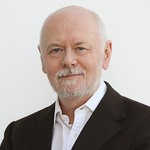Blog
From the Editor’s Desk (June-August 2015)
And so we come to the summer Angle. We have just passed the longest day (midsummer) in Helsinki, with 19 or so hours of daylight. The seagulls nesting near the UNU-WIDER office have hatched their chicks, and everyone is looking forward to the summer holiday month of July.
Here at UNU-WIDER we are in the middle of a big overhaul of our IT system in advance of the launch of the new website in September. And there will be a new interface for the World Income Inequality Database (WIID).
As Angle was being finalized, we learnt the sad news of the death on 23 June of Professor Ajit Singh, Professor Emeritus of economics at Cambridge University. Ajit was one of the outstanding figures in the last 50 years of development economics. I well recall the time I first met him Dar es Salaam in 1980 when the door to my office in the Ministry of Trade and Industries opened and in walked the imposing figure of Ajit. We then fell into deep conversation about the economic crisis that Tanzania was going through at the time. I saw him regularly over the years, particularly when he came over to Manchester University to participate in our BWPI summer schools with Joe Stiglitz. He was a very good friend for UNU-WIDER, an inspiration to all, and we will miss him greatly.
Turning to this month’s Angle I report back from Dar es Salaam where we held a policy seminar on aid and its impact, hosted by the Embassy of Denmark. It was an excellent gathering, and a good opportunity to take stock of what we know about aid, and what the future might hold.
I also recently spoke at an event on aid organized by the Ministry for Foreign Affairs of Finland. Meanwhile, Finn Tarp and I have a special issue of World Development just out on aid, which is open access—like all UNU-WIDER special issues and journal articles.
In June Mozambique celebrated 40 years of independence. The country has gone through much since then. I remember being in Maputo in the early 1990s as the war ended. A lot has been achieved over the last 25 years, including robust growth, and the country is looking forward to the arrival of revenues from offshore natural gas. The task ahead is to reduce poverty, and achieve regional economic development.
Channing Arndt, UNU-WIDER senior research fellow, has considerable experience in Mozambique, and in this issue of Angle, Channing reflects on what must be done to deliver broad-based development. He gives especial emphasis to the central role of agriculture, which still employs 80 per cent of Mozambicans. This resonates with Peter Timmer's WIDER Annual Lecture last year on structural transformation and agriculture.
Elsewhere in Angle Roger Williamson has a fine piece on the African Universities and their role. Roger looks to the future, for there cannot be successful development in Africa without a good university system. Here at UNU-WIDER we get many African researchers visiting us on both our sabbatical and PhD internship programmes. Recently we have had interns from Burkina Faso, Ethiopia, Ghana, and Uganda, to name just a few countries. Many African researchers come to our conferences, both here in Helsinki, and in Africa itself (we have one coming up in South Africa soon on 7-9 October). And of course the chair of the UNU-WIDER board is Ernest Aryeetey, who is Vice-Chancellor of the University of Ghana.
By the way, if you haven’t read Roger’s piece last month on research impact and UNU-WIDER, you can catch up with it here. Roger can be followed on twitter at @rogerw_dev. And his interviews with the UNU-WIDER network are on our YouTube channel. We hope that these interviews with some of the more senior members of our network will inspire the next generation of researchers in development economics.
Our RESEARCHAngle features UNU-WIDER work on firm productivity. We have done a great deal on the impact of clustering as part of our Learning to Compete project. The first of the two briefs this month is on how industrial productivity has been improved by industrial clusters in Tunisia, and the second one is on the spillover effects of clustering in Cambodia.
VIDEOAngle profiles Nora Lustig, who was interviewed at last year’s UNU-WIDER conference on inequality. Nora is a former UNU-WIDER board member. She is internationally known for her work on income inequality in Latin America, and has recently being doing a lot of research on fiscal incidence. Nora participated in Andrea Cornia’s newly completed UNU-WIDER project on falling inequality in Latin America.
In ARCHIVEAngle Ha-Joon Chang looks at institutions, and the role they could and should play in promoting economic development.
Angle will now take a break until September. Don’t worry, we are still hard at work. But we are preparing the new website for its launch, which will include a new Angle blog. In the meantime, if you are in the northern hemisphere, have a good summer.
 Join the network
Join the network
